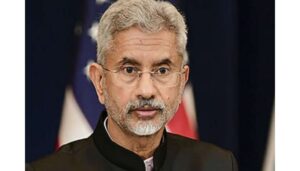
India’s Efforts Against Terrorism Financing and Money Laundering Noted in FATF’s Latest Mutual Evaluation Report
New Delhi, 19th September 2024: On Thursday, the Financial Action Task Force (FATF) released its mutual evaluation report on India’s efforts to combat terrorism financing and money laundering, categorizing the country under “regular follow-up.”
The report highlights that India has demonstrated strong technical compliance with FATF Recommendations and has made significant progress in its fight against illicit finance. India’s anti-money laundering and counter-terrorist financing (AML/CFT) framework is reportedly yielding positive results, particularly in understanding risks, accessing beneficial ownership information, and confiscating assets from criminals.
However, the report stresses the need for India to enhance its system as its economy and financial sector expand. This includes ensuring that trials related to money laundering and terrorist financing are completed and that offenders face appropriate sanctions. Additionally, it recommends adopting a risk-based and educational approach with non-profit organizations.
Importance of the FATF Evaluation
The FATF, an intergovernmental organization dedicated to combating money laundering and terrorist financing, sets international standards and promotes effective implementation among its member countries. India’s inclusion in the “regular follow-up” category means it will need to report back in three years about its progress in addressing identified deficiencies.
This status aligns India with only a few other G20 countries, underscoring its leadership in regional AML/CFT efforts. High compliance with FATF standards boosts India’s credibility in global financial markets, which can enhance access to international financial institutions and increase investor confidence, crucial for supporting India’s rapid economic growth.
Potential Benefits
Investor Confidence: A positive FATF evaluation enhances India’s reputation as a stable and secure financial environment, essential for attracting foreign investment. High ratings signal to investors that India has a robust framework to combat money laundering and terrorist financing, fostering trust in the financial system.
Lower Borrowing Costs: Improved credibility may lead to lower borrowing costs on international markets, providing better financing options for both public and private sectors, which supports economic growth.
Unified Payments Interface (UPI): FATF recognition is expected to bolster the global expansion of UPI, India’s fast payment system, enhancing digital transactions and financial inclusion by making financial systems more accessible to a broader population.
Risks and Areas for Improvement
The FATF report identifies that India’s primary money laundering risks stem from domestic illegal activities, including fraud, cyber-enabled fraud, corruption, and drug trafficking. While India addresses money laundering related to fraud and forgery effectively, it needs to improve its handling of other offences like human trafficking and drug trafficking. There is also a backlog of money laundering cases pending court resolution.
The report notes serious terrorism and terrorist financing threats, including those linked to ISIL and Al Qaeda. Although India has made strides in disruption and prevention and has demonstrated proficiency in complex financial investigations, there is a need for greater focus on concluding prosecutions and appropriately sanctioning terrorist financiers.
India must also ensure that measures to prevent the abuse of the non-profit sector for terrorist financing are effectively implemented, including outreach to non-profits about their risks.
FATF’s Praise for India
The FATF report acknowledges India’s significant advancements in financial inclusion, doubling the proportion of the population with bank accounts, promoting digital payment systems, and employing simplified due diligence for small accounts. These efforts contribute to financial transparency and strengthen AML/CFT measures.
Despite the complexity of India’s financial system, authorities have shown effective cooperation and coordination in dealing with illicit financial flows and have achieved positive results in international cooperation, asset recovery, and implementing targeted financial sanctions for proliferation financing. However, the report suggests that Indian authorities need to enhance the sharing of insights on money laundering, terrorism, and proliferation financing risks across all relevant stakeholders
















